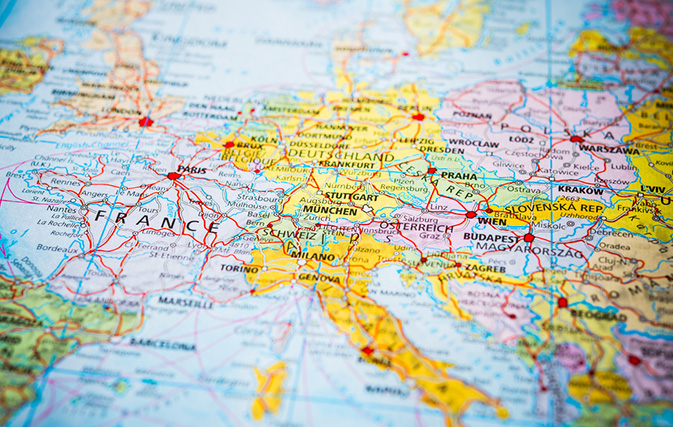TORONTO — Canadians were dealt with another blow this week when news broke that the European Union was set to remove Canada from its list of approved countries from where travellers can enter the bloc without COVID-19-related travel restrictions.
The decision was made official yesterday, Oct. 22, with Georgia and Tunisia also being removed from the list.
Canada has been on the list from the start in July, along with 14 other countries. However, with EU officials meeting every two weeks to evaluate country cases of COVID-19, several countries have since been removed, including Algeria, Montenegro, Morocco and Serbia, and now Canada, Tunisia and Georgia.
As of Oct. 22, Canada has reported over 208,000 confirmed cases of the virus.
Though the move will certainly mean an even steeper decline in visitors to Europe for the remainder of the year, Pascal Prinz, Chair of the European Travel Commission’s Canada Chapter, tells Travelweek that all eyes are already on 2021.
“Tour operators and agents confirm that Europe is in high demand next year,” he says. “Canadians can’t wait to go back to experience our culture, gastronomy, stunning nature and historic cities. The love of Canadians for Europe will not stop during this pandemic.”
He adds that he doesn’t think that Canadians will simply travel locally from now on, as they “have always been curious travellers who want to see the world.”
Though optimistic about the future, Prinz says it’s important to note that travel bans and quarantines have a devastating effect on international travel and are killing the recovery of tourism. The tourism sector in Europe has been calling on EU governments for months to avoid blanket restrictions and replace them with cost-efficient measures to minimize the risks involved with travelling right now.
“Governments on both sides of the Atlantic should work together to develop a standardized protocol for testing upon departure and coordinated tracing systems,” he says. “Before a vaccine is available and this crisis is behind us, we need to learn to facilitate travel with smart solutions for the new normal.”
Prinz, who also serves as Director Canada for Switzerland Tourism, says that travel volume to his native country is “already painfully low.” In July and August, Switzerland has seen around 10% of volume from Canada in terms of overnights and arrivals in comparison to the same period last year, representing a massive 90% drop.
Though EU’s list is not binding, meaning it is merely a guideline and member nations are free to make their own rules regarding entry requirements and protocols, Prinz expects Switzerland to follow EU’s latest recommendation and prohibit all non-essential travel from Canada.
Italy, on the other hand, will continue to welcome Canadian travellers, albeit with a 14-day mandatory self-isolation rule in place, says Salvatore Basile, Coordinator for Canada of the Italian National Tourist Board. However, he adds that coupled with Canada’s mandatory 14-day quarantine for all passengers arriving in or returning to Canada, “it becomes very clear that it will be very difficult for anybody to decide to travel to Italy for at least the next few weeks or months.”
When asked how EU’s Canadian ban could affect Italy in the short term, Basile tells Travelweek that there will be no real impact.
“International tourism from North America is currently at a “very low level,” not just for Italy but across all European destinations,” he says. “Canadian tourism in Italy has always represented an important segment of the market. According to Statistics Canada’s final figures for 2019, Italy was the second most popular European destination for Canadian travellers.”
Basile adds: “But even before the EU recommendation was issued, there were many serious obstacles to the free flow of tourists. We are all learning about new containment measures on a daily basis that have the sole objective of limiting the spread of the virus. In a way, this affects not only relations between countries but also personal relations in our everyday life. We are all aware any type of relations is destined to resume and improve in the long-term.”
As of Oct. 22, Germany is still permitting entry to Canadians, while France, which last updated its restrictions and requirements list on Oct. 19, also currently states that there are no health-related restrictions for travel from Canada. Click here and here for the most current information.
The EU’s updated list now comprises: Australia; China (subject to reciprocity); Japan; New Zealand; Rwanda; Singapore; South Korea; Thailand; and Uruguay. Countries are evaluated based on their epidemiological situation and containment measures, including physical distancing, as well as economic and social considerations. The EU also says that reciprocity should also be taken into account regularly and on a case-by-case basis.


